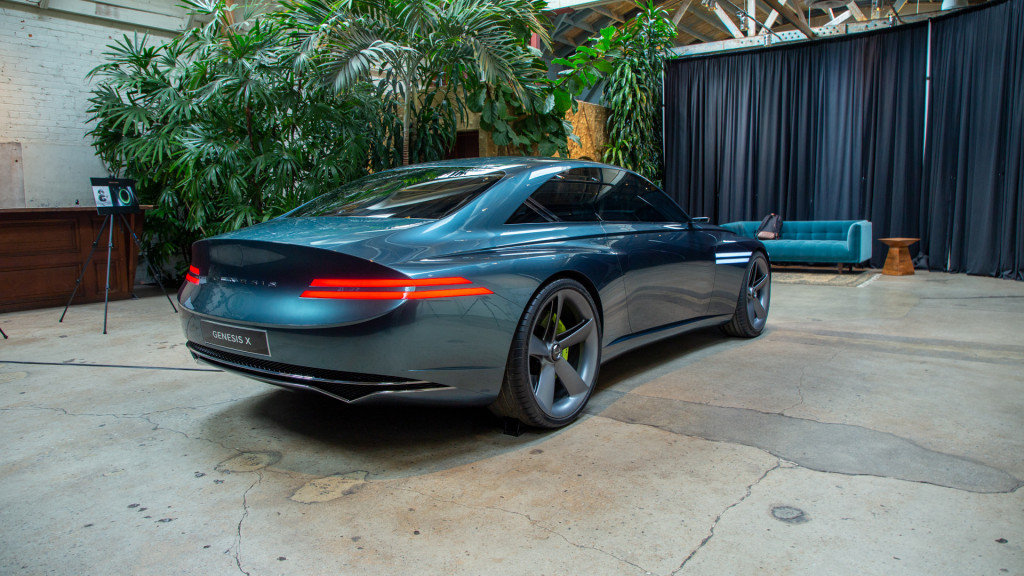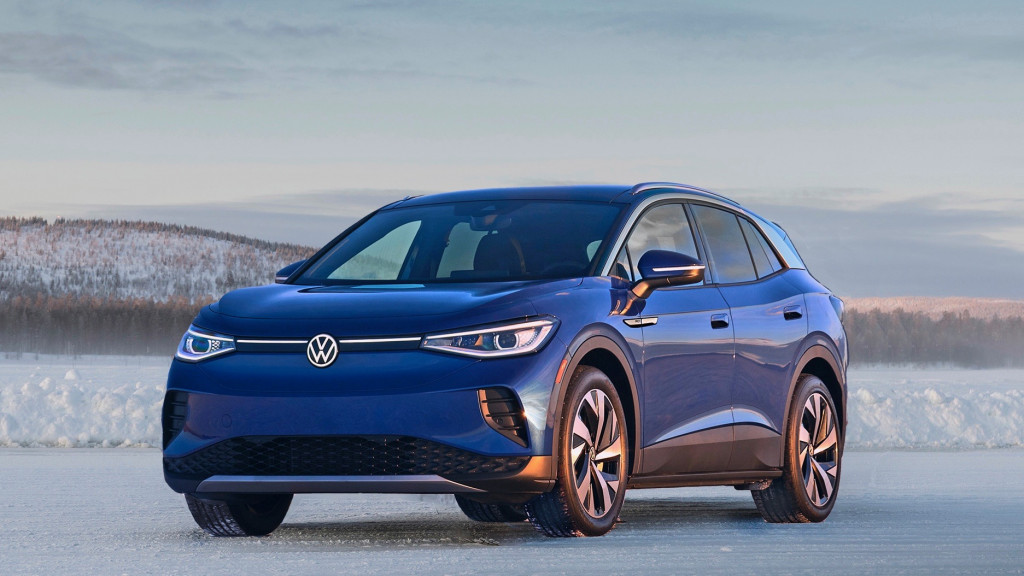Concepts are supposed to hint at what is coming from an automaker, but Genesis doesn’t seem to follow that rule. The last three Genesis Concepts, including the Genesis X that the brand revealed on Tuesday, have been battery-electric coupes. The last two Genesis vehicles to be chosen for production? Two SUVs: the mid-size GV80 and the compact GV70, and coming after them will be the GV60, which is rumored to be an even smaller battery-electric SUV as well.
However, a few elements of the Genesis X that the South Korean brand showed journalists in California recently have us feeling a bit more bullish that this concept will finally portend an electric-powered touring or sports coupe. Its predecessors, the Essentia and Mint, which debuted at consecutive New York Auto Shows (remember those?) in 2018 and 2019, were more out there in terms of styling. The Genesis X feels firmly planted in what Genesis is currently producing, with the brand’s signature parallel lines found in the headlights, taillights, and a pair of metal strips on the rear side windows. In fact, the new metallic badge seen on the concept will also make its way onto every redesigned Genesis going forward after the GV70.

Genesis X concept – March 2021
Details on the car are extremely thin at the moment. We know the powertrain will be fully electric and feature inductive charging, the same technology used to wirelessly charge smartphones just on a larger scale. We know it’s meant to be a 2+2 grand touring coupe in the vein of the Lexus LC and BMW 8-Series, even though this particular concept does not have an interior. Apart from that we’re left guessing, though Genesis representatives did say in hushed tones that a more fleshed out version of the concept was currently somewhere in Asia in an ambiguous state of completion but with an interior. Stay tuned.
So, we’re left with a lot of questions about the Genesis X, the biggest of which is what platform it would potentially use. Sharing its underpinnings with the forthcoming GV60 would make sense; it’s Hyundai Motor Group’s E-GMP platform that will also provide the basis of the Ioniq 5 SUV and Kia EV6. Other questions include: Will it be rear- or all-wheel drive? Will Genesis join Audi in the long-term battle to get camera side mirrors approved by American regulatory agencies? Will a production model also look this good?
Once again we’re stuck in the waiting game. Even when Genesis insisted that the Essentia would spawn a production coupe in 2021 or 2022, it didn’t make sense to build a halo car without the rest of the Genesis lineup fleshed out. But there have been no such promises this time, and with the lineup soon to hit three sedans and three SUVs, the time is ripe for a sportier coupe. Hopefully, the third electric coupe concept from Genesis is the charm.




